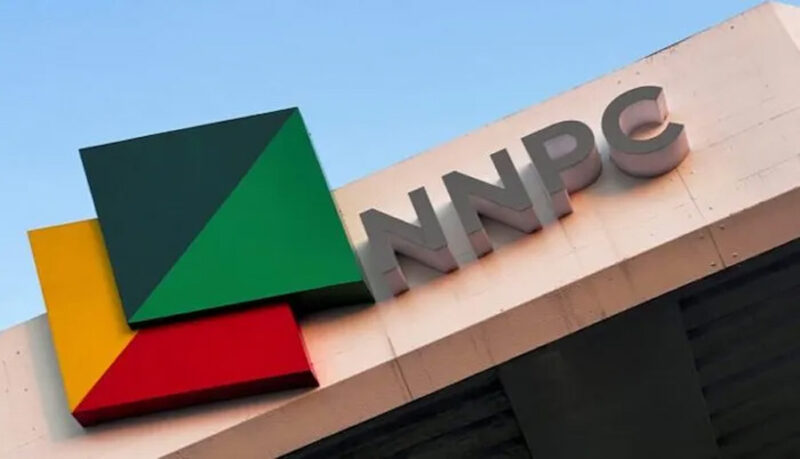Business
IMF insists on removal of fuel subsidy, official exchange rate

The International Monetary Fund has insisted that the Nigerian government is left with no option than to stop subsidising fuel if it must make remarkable progress in its economic recovery efforts.
It also urged the Federal Government to remove the official exchange rate.
This is coming about two weeks after the Nigerian government had suspended its plan to remove fuel subsidy this year and opted to extend the subsidy removal implementation period by 18 months, saying it would engage the legislature for the amendment of the Petroleum Industry Act.
The position of the IMF was contained in the Executive Board’s conclusion of the Article IV consultation with Nigeria report, which was released on Monday.
The Fund’s statement on the report said, “Directors also urged the removal of untargeted fuel subsidies, with compensatory measures for the poor and transparent use of saved resources.
“They stressed the importance of further strengthening social safety nets.
“Directors called for stronger efforts to improve the transparency of COVID-19 emergency spending.”
It therefore called for significant domestic revenue mobilization, including by further increasing the value-added tax rate, improving tax compliance, and rationalizing tax incentives.
It also said, “Directors welcomed the removal of the official exchange rate and recommended further measures towards a unified and market-clearing exchange rate to help strengthen Nigeria’s external position, taking advantage of the current favourable conditions.
“They noted that exchange rate reforms should be accompanied by macroeconomic policies to contain inflation, structural reforms to improve transparency and governance, and clear communications regarding exchange rate policy.
“Directors considered it appropriate to maintain a supportive monetary policy in the near term, with continued vigilance against inflation and balance of payments risks.
“They encouraged the authorities to stand ready to adjust the monetary stance if inflationary pressures increase.
“Directors recommended strengthening the monetary operational framework over the medium term—focusing on the primacy of price stability—and scaling back the central bank’s quasi-fiscal operations.”
The IMF stated that its executive directors commended the Nigerian authorities’ proactive management of the COVID-19 pandemic and its economic impact.
They noted that the outlook remained subject to significant risks, including from the pandemic trajectory, oil price uncertainty, and security challenges.
Looking ahead, they emphasized the need for major reforms in the fiscal, exchange rate, trade, and governance areas to lift long-term, inclusive growth.
Directors also highlighted the urgency of fiscal consolidation to create policy space and reduce debt sustainability risks.
The board noted the Nigerian economy was recovering from a historic downturn benefitting from government policy support, rising oil prices and international financial assistance.
It said, “After registering a historic deficit in 2020, the current account improved in 2021 and gross FX reserves have improved, supported by the IMF’s SDR allocation and Eurobond placements in September 2021.
“Notwithstanding the authorities’ proactive approach to contain COVID-19 infection rates and fatalities and the recent growth improvement, socio-economic conditions remain a challenge. Levels of food insecurity have risen and the poverty rate is estimated to have risen during the pandemic.”
Business
MTN, Airtel to share network infrastructure in Nigeria

MTN, Airtel to share network infrastructure in Nigeria
Airtel Africa has partnered with MTN Group to expand digital inclusion by sharing network infrastructure in Uganda and Nigeria.
In a statement in Lagos on Wednesday, Airtel said the sharing agreements aim to improve network cost efficiencies, expand coverage, and provide enhanced mobile services to millions of customers.
A sharing agreement is a formal arrangement between two or more parties to share resources, assets, or services.
According to the telecommunications company, the partnership will benefit customers in remote and rural areas who do not yet fully enjoy the benefits of a modern connected life.
Airtel assured that both parties will ensure the agreement complied with local regulatory and statutory requirements.
Sunil Taldar, chief executive officer (CEO) of Airtel Africa, said telecommunications companies are driving digital financial inclusion by building common infrastructure within the regulatory framework.
Taldar noted that the collaborative approach not only advances digital transformation and financial inclusion but also reduces the duplication of expensive infrastructure.
READ ALSO:
- Kogi group seeking Senator Natasha’s recall not registered – CAC
- Obasanjo’s position on Rivers emergency rule hypocritical, says Presidency
- Bill to stop politicians above 60 from contesting presidential, gov poll scales 2nd reading in Reps
As a result, Taldar said operational efficiencies are boosted, ultimately benefiting customers.
He further said telecoms continue to compete fiercely in the market, differentiating themselves through their brand, services, and offerings.
“The initiative is part of a growing global trend toward network sharing. By collaborating, telecoms operators can explore innovative and pro-competitive solutions to improve service quality while managing costs more effectively,” Taldar said.
“The sharing of infrastructure has the potential to enable the delivery of world-class, reliable mobile services to more and more customers across Africa.”
Taldar added that following the conclusion of agreements in Uganda and Nigeria, MTN and Airtel Africa are also exploring various opportunities in other markets, including Congo-Brazzaville, Rwanda, and Zambia.
Ralph Mupita, MTN Group CEO, said there is a need to invest in coverage and capacity to ensure high-quality connectivity to meet customers’ increasing demands.
“As MTN, we are driven by the vision of delivering digital solutions that drive Africa’s progress,” Mupita said.
“We continue to see strong structural demand for digital and financial services across our markets.
“To meet this demand, we continue to invest in coverage and capacity to ensure high-quality connectivity for our customers.”
Mupita added that there are opportunities within regulatory frameworks for sharing resources to drive higher efficiencies and improve returns.
MTN, Airtel to share network infrastructure in Nigeria
Business
NNPCL in historic initial public offer, ready for capital market

NNPCL in historic initial public offer, ready for capital market
The Nigerian National Petroleum Company Limited (NNPCL) has announced that it is in the final stages of preparation for its much-anticipated listing on the capital market, in line with the provisions of the Petroleum Industry Act (PIA) 2021.
The company’s Chief Corporate Communications Officer, Olufemi Soneye, disclosed this in a statement on Thursday in Abuja.
According to the statement, the Chief Finance and Investor Relations Officer, Olugbenga Oluwaniyi, revealed the development during a consultative meeting with partners at the NNPC headquarters.
READ ALSO:
- Kogi group seeking Senator Natasha’s recall not registered – CAC
- Obasanjo’s position on Rivers emergency rule hypocritical, says Presidency
- Bill to stop politicians above 60 from contesting presidential, gov poll scales 2nd reading in Reps
He stated that NNPCL is currently engaging with potential investors through an exercise called the “NNPC Ltd. IPO Beauty Parade,” which aligns with capital market regulations ahead of its Initial Public Offer (IPO).
“According to the CFIO, the aim of the IPO Beauty Parade is to access potential partners and determine in what ways they could be of support to the company,” the statement explained.
The statement further highlighted that NNPCL is seeking partnerships in three key areas: Investor Relations, IPO Readiness Advisors, and Investment Banking Partners. Companies with the most competitive offers will be selected for each category.
An IPO is a public offering in which a company’s shares are sold to institutional investors. Under the PIA, NNPCL is required to list its shares on the capital market in compliance with the Companies and Allied Matters Act (CAMA) 1990.
NNPCL in historic initial public offer, ready for capital market
Business
Naira rises to N1,560/$ in parallel market

Naira rises to N1,560/$ in parallel market
The Naira yesterday appreciated to N1, 560 per dollar in the parallel market from N1,570 per dollar on Wednesday. But the Naira depreciated to N1,540 per dollar in the Nigerian Foreign Exchange Market (NFEM).
Data published by the Central Bank of Nigeria, CBN, showed that the indicative exchange rate for the naira rose to N1,540 per dollar from N1,539 per dollar on Wednesday, indicating N1 depreciation for the naira.
READ ALSO:
- How Wande Abimbola rejected IBB’s ING bait, and other stories (2)
- FG declares public holidays for Eid-el-Fitr
- JUST-IN: Ex-Oyo gov Ajimobi’s first child Bisola dies At 42
Naira rises to N1,560/$ in parallel market
-

 metro3 days ago
metro3 days agoAttack on Mufty of Ilorin: Onikijipa Family Charges Stakeholders to Call Sheikh Habibullahi Al-Ilory to Order
-

 metro23 hours ago
metro23 hours agoRivers administrator Ibas fires Fubara’s political appointees
-

 metro23 hours ago
metro23 hours agoJUST-IN: Ex-Oyo gov Ajimobi’s first child Bisola dies At 42
-

 metro2 days ago
metro2 days agoHow ritualists, native doctor drugged, murdered underage sisters in PH – Police
-

 International2 days ago
International2 days agoCanada removes bonus ranking points for job offers in Express Entry system
-

 Sports2 days ago
Sports2 days agoNigeria’s Super Eagles falter in W’Cup qualifiers against Zimbabwe, S’Africa lead, Egypt, Morocco qualify
-

 metro23 hours ago
metro23 hours agoFG declares public holidays for Eid-el-Fitr
-

 Africa1 day ago
Africa1 day agoNiger coup leader sworn in as president for five years













